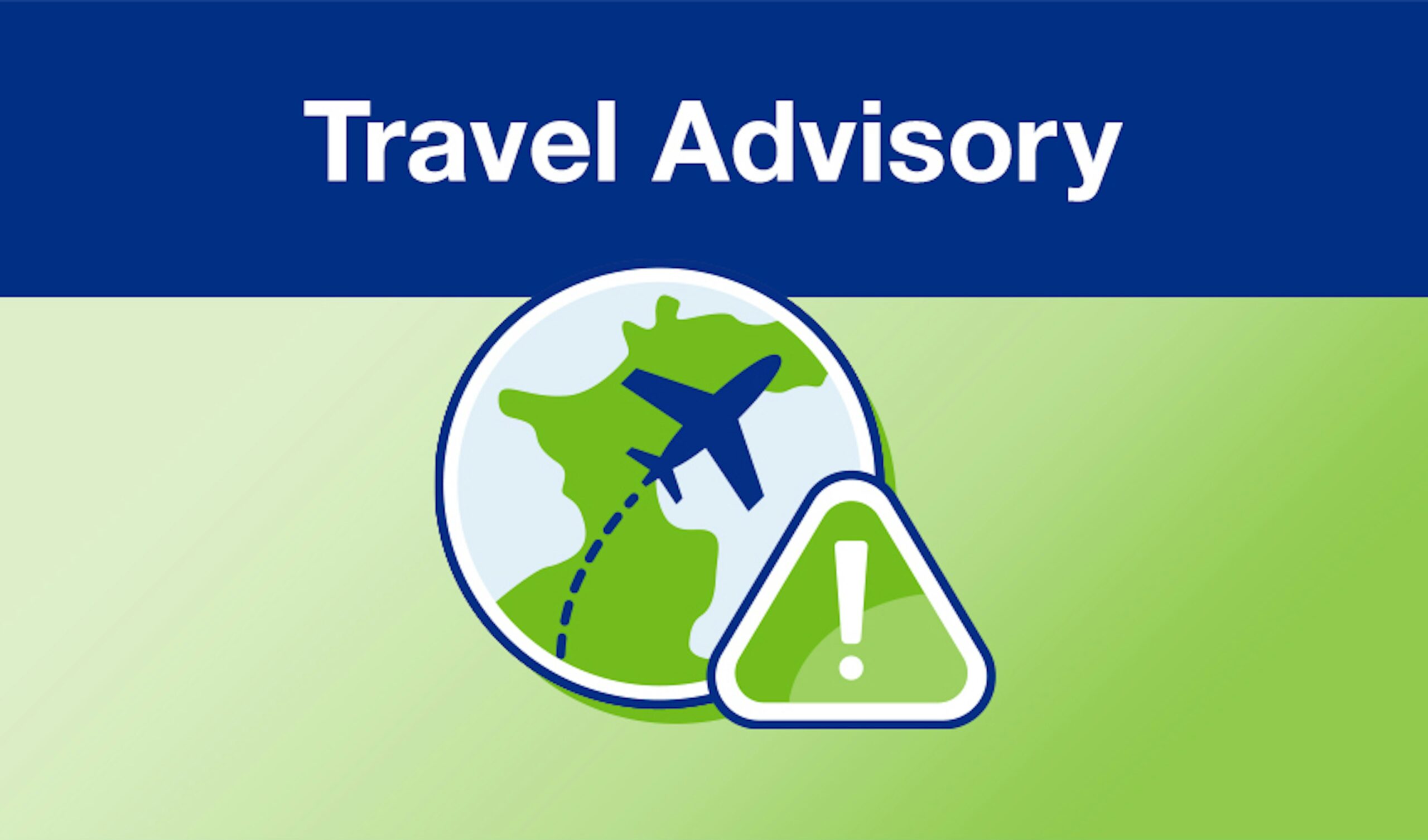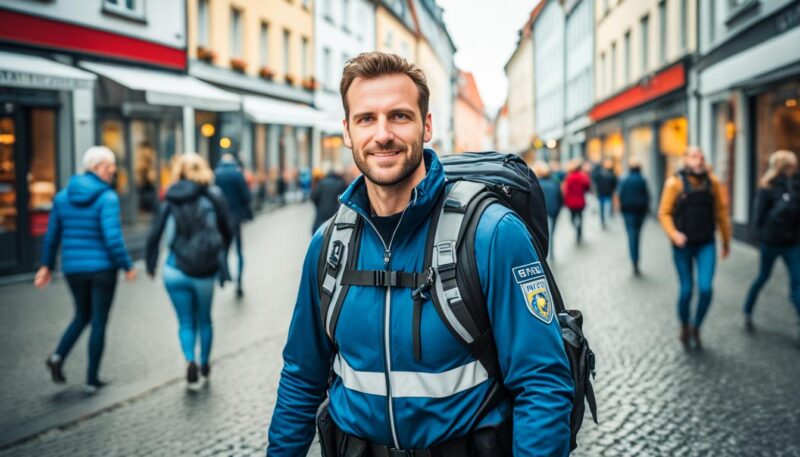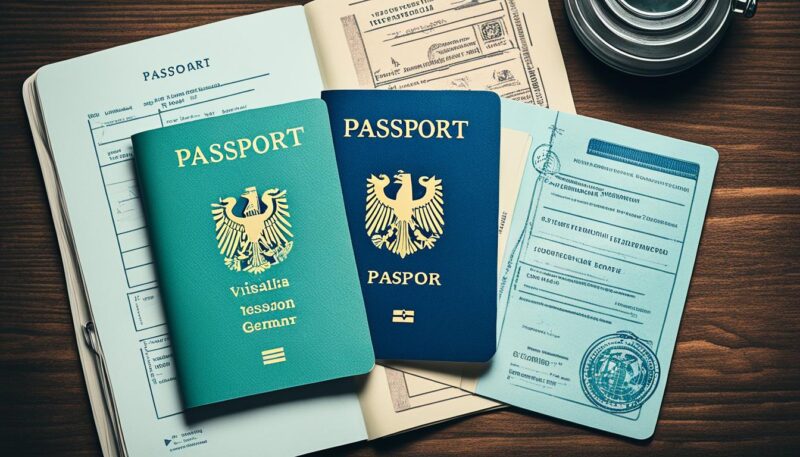Germany is a top choice, welcoming over 37 million visitors every year. Yet, travelers should be extra cautious because of terrorism threats. The German government watches for dangers and terrorists plan attacks in various parts of the country.
For those heading to Germany, staying alert is key. Always know what’s around you. Follow any advice from the local authorities. Also, keep up with the news for the latest updates. The U.S. and U.K. both offer lots of help and info for anyone visiting, making sure everyone has what they need to stay safe.
Key Takeaways
- Germany is generally considered safe for travel, but travelers should exercise increased caution due to the threat of terrorism.
- The German government maintains a public alert system on terrorism, and terrorist groups continue to plan attacks in the country.
- Travelers are advised to be aware of their surroundings, follow the instructions of local authorities, and monitor local media for breaking events.
- The U.S. and U.K. governments provide comprehensive travel information and resources for those visiting Germany.
- Germany’s political stability and low crime rates make it a relatively safe destination for tourists, but vigilance is still recommended.
Safety Concerns and Travel Advisories

The U.S. Department of State has given a travel warning for Germany. They advise U.S. citizens to be more careful because of the risk of terrorism. Terrorist groups are still planning attacks in Germany. Tourist spots, transportation centers, markets, shopping malls, and other public places might be their targets.
The warning also talks about violent crime, which is not very common. However, it can still happen. Things like pickpocketing and bag snatching are more usual, especially in big cities, at transportation hubs, and where tourists go.
Germany’s Travel Advisory
The German Federal Ministry of the Interior and Community says that Islamist terrorism is a big security threat. They believe it will continue to be a major issue in the future for Germany and the West. Even though there haven’t been big terrorist events recently, the danger remains. This is something German security forces are very focused on.
Terrorism Threats in Germany

Germany, for the most part, is safe. Yet, in big cities like Berlin, Hamburg, and Munich, petty crimes like pickpocketing and bag snatching are more common. This happens a lot in busy tourist spots and on public transport. Groups of pickpockets often try to distract tourists to steal from them.
Violent crime is not usual, but it can happen. There have also been reports of hate crimes by far-right groups against minorities. Travelers should be aware of these issues, especially in the larger cities.
Crime Rates in German Cities
While Germany is generally a safe country, the major cities, including Berlin, Hamburg, and Munich, do experience higher rates of petty crimes like pickpocketing and bag snatching, particularly in crowded tourist areas and on public transportation. Organized groups of pickpockets often use distraction techniques to target tourists. Violent crime is less common but does occasionally occur, and crimes committed by far-right extremists against minorities have been reported.
Is Germany Safe To Visit?
Germany is safe for tourists, but you should be careful. Always watch your surroundings, especially in crowds or on buses and trains. Keep up with local alerts about protests or strikes that could affect your plans. Also, be careful with public Wi-Fi and online shopping to avoid cyber issues. When you go out, make sure to have the right gear if you’re hiking or skiing, and always have a guide.
General Safety and Security Tips

It’s good to know Germany’s laws and guidelines before you go. Drinking in public is okay, but getting too drunk might cause issues. Remember, smoking is not allowed in many places, and there can be fines for breaking the rules. Being on time is important to Germans, so it’s good to show up when you’re supposed to.
Local Laws and Customs
Germany’s transport, like trains and buses, is safe. But, there can be pickpockets and scams in busy spots. Always use legal taxis or recommended car services. Driving is okay, but the fast roads can be a bit challenging. It helps to know the local driving rules.
Transportation Safety
To make the most of your trip, know these safety tips. Then, you can enjoy all Germany’s rich culture and history with peace of mind.

Health and Medical Considerations
Germany is a healthy country with a life expectancy just like the United States. But, there are still health risks travelers should know. Ischemic heart disease, stroke, and lung cancer are top causes of death. Excessive drinking, smoking, and bad diets are big problems too.
Make sure you have all your routine vaccines before traveling. Depending on where you’re going, you might need extra shots, like for yellow fever. Don’t forget about food and water safety. Taking precautions can help you avoid getting sick.
Health Risks and Precautions
Travelers heading to Germany, beware of some health risks. Ischemic heart disease, stroke, and lung cancer are big issues. So is too much drinking, smoking, and poor diets. Keeping up with your vaccines is essential, and you might need more for specific diseases, depending on your plans. Remember to be cautious with what you eat and drink to prevent any health troubles.
COVID-19 Restrictions and Guidelines

In 2023-2024, Germany lifted all COVID-19 restrictions, but things could change. It’s vital to stay updated with health advice from the World Health Organization and the European Union, along with Germany’s BAMF. These organizations offer the latest COVID-19 guidelines and entry needs.
Travelers should watch these updates closely. Stay ready to change plans, wear a mask, and keep good hygiene if things shift. Even with restrictions lifted, being prepared is key to a safe trip.
Documentation and Entry Requirements
To enter Germany, U.S. citizens must have a passport with over 3 months until it expires. You can stay up to 90 days without a visa. But, if you plan to stay longer or not for tourism, you’ll need a visa.
Passport and Visa Regulations
U.S. citizens need a valid passport with more than 3 months left. A visa isn’t needed for trips under 90 days in Germany and the Schengen area. For longer stays or non-tourism trips, you must get a visa.
ETIAS (European Travel Information and Authorization System)
The EU is launching the ETIAS for visa-free country travelers, like the U.S., in mid-2025. It’s a new entry requirement for places like Germany. You will need an online travel authorization. It lasts for multiple entries over 3 years. Make sure to check updates on the ETIAS to visit Germany smoothly.

Natural Disasters and Emergencies
Germany doesn’t often face big natural disasters. But, it can have heavy storms, floods, and heat waves. The Federal Office for Civil Protection and Disaster Assistance helps by sharing information and tips.
Potential Natural Disasters
Germany isn’t a hot spot for disasters, but weather can cause issues. Heavy storms, winter storms, and thunderstorms sometimes happen. They might lead to power outages, floods, and troubles with getting around.
Areas near rivers like the Rhine and Elbe might flood in spring and summer. Heat waves, though rare, can be hard on some people in Germany.
Emergency Services and Contacts
If you find yourself in an emergency in Germany, here are some numbers to remember:
| Emergency Service | Contact Number |
|---|---|
| General emergency | 112 |
| Police emergency | 110 |
| Emergency medical service for urgent but not life-threatening situations | 116 and 117 |
There’s a citizen service available from the Federal Office from 9 a.m. to 3 p.m., Monday to Friday, at 0228 99 550-3670. Always keep your hotel’s contact, and any local friends, handy in case of need.
Conclusion
Germany is safe for travelers but knowing safety issues is key. This includes watching out for terrorism and small crimes. Stay alert and follow local laws to stay safe. This way, you can enjoy Germany’s rich culture and historical sites while ensuring your security.
Before going to Germany, check health and entry needs. With the right info, you can travel confidently. Germany is known for being safe but being cautious enhances your visit. This helps you fully enjoy all the country offers.
To safely enjoy Germany’s cities and scenic spots, know the risks and follow advice. The country works hard to make it safe for everyone. So, be prepared and travel with confidence to this welcoming European gem.
FAQ
Is Germany safe to visit?
The U.S. Department of State says Germany is mostly safe for visitors. But, you should be careful because of the threat of terrorism. The German government always shares information on terrorism with the public. Terrorist groups plan attacks, so you need to be cautious.
What are the safety concerns and travel advisories for Germany?
A travel advisory is issued for Germany by the U.S. Department of State. It tells U.S. citizens to be extra careful due to terrorism threats. Terrorist attacks could happen at tourist sites and popular public areas. Petty crimes like pickpocketing are common in big cities and tourist spots. Violent crimes are rare but can happen.
What are the general safety and security tips for visiting Germany?
Stay alert in busy and public places and on public transport. Always follow what local authorities say. Be aware of any protests or strikes that might happen. Try to avoid using public Wi-Fi for secure transactions.
What are the local laws and customs in Germany that travelers should be aware of?
Learn about Germany’s laws and customs to avoid trouble. Drinking alcohol in public is okay, but don’t get too drunk. Smoking is banned in many places. Be on time, as punctuality is very important to Germans.
How safe is the transportation system in Germany?
Germany’s transport system is safe and well-maintained, including trains, trams, and buses. However, be careful of pickpockets in crowded places. For taxis, use known companies. Driving is relatively safe, but beware of the fast autobahns and follow traffic laws.
What are the health risks and precautions for travelers to Germany?
Germany is generally safe health-wise. Make sure your routine vaccinations are up to date. Consider extra vaccines depending on where you’re going. Also, practice good food and water safety to avoid getting sick.
What are the COVID-19 restrictions and guidelines in Germany?
In 2023-2024, Germany removed all COVID-19 restrictions. But, the situation can change, so keep up with news. Watch for updates from the WHO, EU, and Germany’s BAMF on COVID-19 guidelines.
What are the passport and visa requirements for visiting Germany?
U.S. citizens need a valid passport to enter Germany. For stays under 90 days, no visa is required. But if you’re staying longer or visiting for other reasons, you’ll need a visa. From mid-2025, the ETIAS system will also be in place for visa-exempt travelers.
What are the potential natural disasters and emergencies in Germany?
Germany doesn’t face many natural disasters, but storms, floods, and heat waves can happen. Know the emergency numbers like 112 for general help and 110 for the police.
Source Links
- https://travel.state.gov/content/travel/en/traveladvisories/traveladvisories/germany-travel-advisory.html
- https://travel.gc.ca/destinations/germany
- https://www.axa-schengen.com/en/blog/travel-safety-advice-germany
